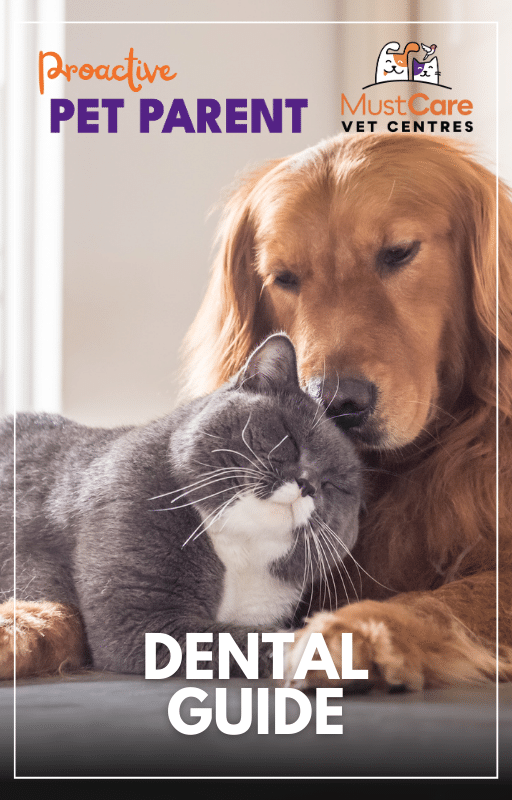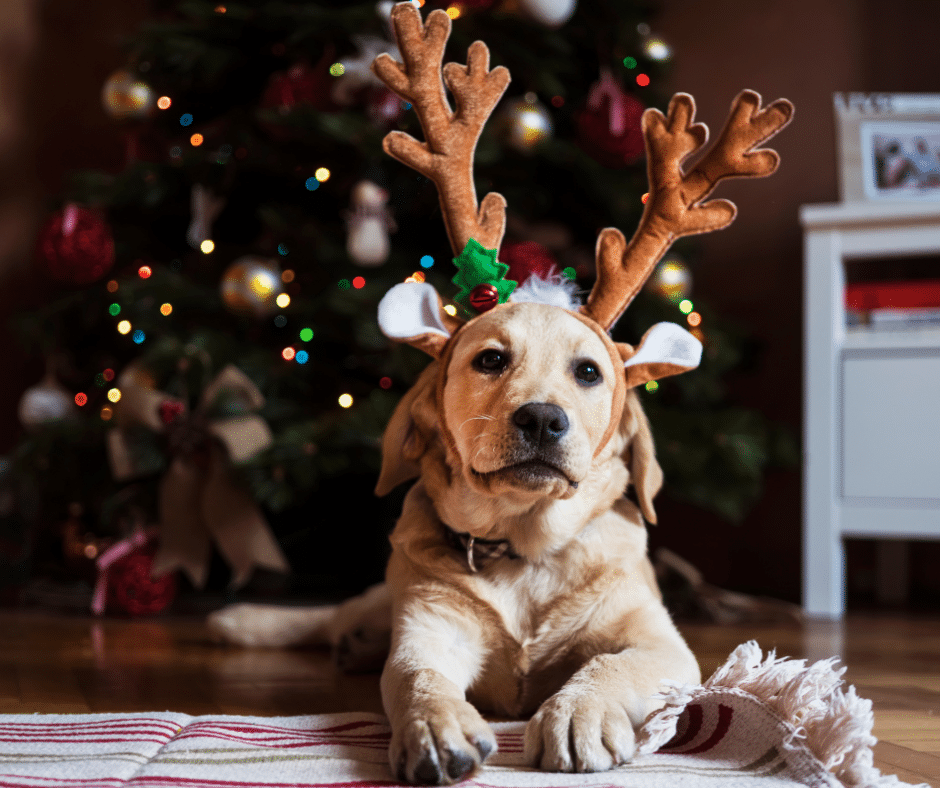Share This Blog With Other Pet Parents!
Top 10 Christmas Dangers For Pets
As the holiday season approaches it’s a time of joy and celebration. However, amidst the excitement and festivities, it’s crucial to consider the safety and well-being of our furry family members. While Christmas in Queensland offers unique experiences different from colder climates, it also brings specific challenges and risks for pets.
In this blog, we’ll explore ten common dangers that pets face during the Christmas season in Queensland, from the risks of the warm summer weather to typical holiday hazards. Our goal is to help you keep your pets safe, healthy, and happy during this festive time.
Our Top 10 Christmas Dangers For Pets (Plus 1 Bonus Set Of Christmas-Related Dangers!)
- Heat Stress
- Toxic Plants
- Snakes and Wildlife
- Swimming Pool Safety
- Sunburn Protection
- Insects and Parasites
- Barbecue Hazards
- Electrical Cords and Decorations
- Alcohol and Party Foods
- Holiday Stress
- BONUS: Christmas Dangers

For all you need to know, download our
FREE Dental Guide
This blog is part of our Proactive Pet Parent series! This is just the beginning… To see more blogs, click here! Better yet, sign-up to our newsletter to receive these directly to your inbox each month.
Sign-up To The Proactive Pet Parent Newsletter
1. Heat Stress
In Queensland, Christmas coincides with the summer season, bringing higher temperatures and humidity. Pets are susceptible to heat stress, particularly breeds with thick coats or short noses.
Signs include excessive panting, drooling, lethargy, and in severe cases, collapse. To prevent heat stress, ensure pets have access to cool, shaded areas and plenty of fresh water. Avoid vigorous exercise during the hottest parts of the day. Cooling mats, paddling pools, and indoor air conditioning can also provide relief. Regular grooming to remove excess fur can help pets cope with the heat more effectively.
2. Toxic Plants
While traditional Christmas plants like poinsettias, mistletoe, and holly are well-known hazards, Queensland’s unique flora also poses risks.
Native plants such as the Macadamia nut can be harmful if ingested by pets. Symptoms of plant toxicity vary but can include vomiting, diarrhea, and lethargy. Research local plants to understand their potential toxicity. Keep hazardous plants out of reach, and consider pet-friendly alternatives for holiday decorations. If you suspect your pet has ingested a toxic plant, seek veterinary assistance immediately.
3. Snakes and Wildlife
Queensland’s warm climate supports a rich diversity of wildlife, including venomous snakes, which are more active during the warmer months. Pets, especially dogs, may encounter snakes in backyards, parks, or while hiking.
To reduce this risk, keep yards tidy by clearing underbrush and debris where snakes might hide. Always supervise pets outdoors and keep them on leashes in snake-prone areas. Train your pet to avoid snakes, and know the signs of a snake bite, which include swelling, pain, and lethargy. Immediate veterinary care is crucial in the event of a snake bite. Read more about what to do if your pet is bitten by a snake.
4. Swimming Pool Safety
Many Queensland homes have swimming pools, which can be a drowning hazard for pets. Not all pets are natural swimmers, and even skilled swimmers can tire or struggle to find a way out of a pool.
Ensure pool safety by supervising pets around water and teaching them how to exit the pool via steps or a ramp. Consider a pet life jacket for added safety. Keep pool chemicals stored safely, as they can be toxic if ingested.
5. Sunburn Protection
Pets, particularly those with short or light-coloured fur, are at risk of sunburn. Sunburn in pets can lead to skin damage and increase the risk of skin cancer.
Protect your pet by providing ample shade and applying pet-safe sunscreen to exposed areas like the nose and ears. Limit sun exposure during peak hours, and consider protective clothing for pets with thin coats. Regularly check your pet’s skin for signs of sunburn, such as redness or flaking.
6. Insects and Parasites
Queensland’s warm, humid climate is ideal for fleas, ticks, and mosquitoes, which can transmit diseases to pets. Regular use of flea and tick preventatives is essential.
Choose products specifically designed for your pet, as some dog products can be toxic to cats. Mosquitoes can transmit heartworm, so heartworm prevention is also critical. Keep your pet’s environment clean, and reduce standing water to minimize mosquito breeding sites. Regularly check your pet for ticks, especially after walks in bushy areas.
7. Barbecue Hazards
Outdoor cooking is a staple of the Queensland Christmas. However, barbecues pose several risks to pets. Cooked bones can splinter and cause internal damage or obstructions if ingested. Skewers, corn cobs, and fatty foods can also be hazardous.
Keep pets away from the barbecue area and ensure all waste is disposed of securely. Be vigilant about food scraps and utensils that pets might access, including keeping lids on rubbish bins. You’d be surprised to see how many pets get into our trash cans and end up in an emergency surgery! Training your pet to avoid certain areas and foods can be beneficial.
8. Electrical Cords and Decorations
Holiday decorations often include electrical cords, lights, and ornaments that can attract pets. Chewing on cords can lead to electric shocks, burns, or entanglement.
Secure cords out of reach and cover them with protective casing. Ornaments, especially small or shiny ones, can be mistaken for toys and ingested, causing intestinal blockages. Use pet-safe decorations and avoid using tinsel or glass ornaments. Regularly inspect decorations for any damage or potential hazards.
9. Alcohol and Party Foods
Festive gatherings often involve foods and drinks that are harmful to pets. Alcohol can cause severe health issues in pets, even in small quantities. Foods high in fat, such as gravy and meats, can lead to pancreatitis, while sweets, especially those containing xylitol, are toxic.
Keep all harmful substances out of reach and inform guests about not feeding your pets. Consider creating a safe, quiet space for your pet away from the party area to reduce stress and the risk of accidental ingestion.
10. Holiday Stress
The holiday season can be overwhelming for pets due to changes in routine and increased household activity. Visitors, loud noises, and disruptions to their environment can cause anxiety. Consider introducing your pet to different visitors and helping them adjust to the change in routine by reading our blog here. Maintain your pet’s regular routine as much as possible, including feeding and exercise times. Provide a quiet, comfortable space where your pet can retreat. Consider using calming aids such as pheromone diffusers or soothing music. Pay attention to your pet’s behaviour and consult a veterinarian if you notice signs of stress or anxiety.
11. BONUS: Specific Dangers Related to Christmas
While we’ve covered general summer-related hazards for pets in Queensland, there are also specific dangers tied directly to Christmas festivities. Here’s a brief overview:
Christmas Trees: Both real and artificial trees can pose risks. Pets might knock them over, leading to injury, or ingest pine needles, which can cause digestive upset.
Ornaments: Glass or breakable ornaments can shatter, leading to potential cuts. Smaller ornaments might be ingested, causing choking or internal blockages.
Tinsel and Ribbons: These shiny decorations are attractive to pets, especially cats. However, if swallowed, they can cause serious intestinal issues, often requiring surgical intervention.
Christmas Lights: Pets might chew on Christmas lights, risking electric shock or burns. Ensure lights are out of reach and cords are protected.
Gift Wrappings: Pets might be tempted to play with wrapping paper or ribbons, but these can cause choking or blockages if ingested.
Holiday Food: Apart from the usual toxic foods (like chocolate, grapes, and xylitol-containing sweets), rich, fatty holiday foods can cause pancreatitis or gastrointestinal upset in pets.
Guests and Parties: The influx of visitors and noise can be overwhelming for pets, leading to stress or anxiety. Make sure your pet has a quiet, comfortable retreat.
Batteries and Small Components: Batteries from new toys or electronics, as well as small parts, can be ingested by curious pets, leading to choking or chemical burns.
Door Hazards: With guests coming and going, there’s a risk of pets escaping. Keep a close eye on exits and ensure your pet is microchipped and has a collar with an ID tag.
Candles and Fire Hazards: Lit candles can be knocked over by pets, creating a fire hazard. Ensure candles are out of reach and never leave them unattended.

